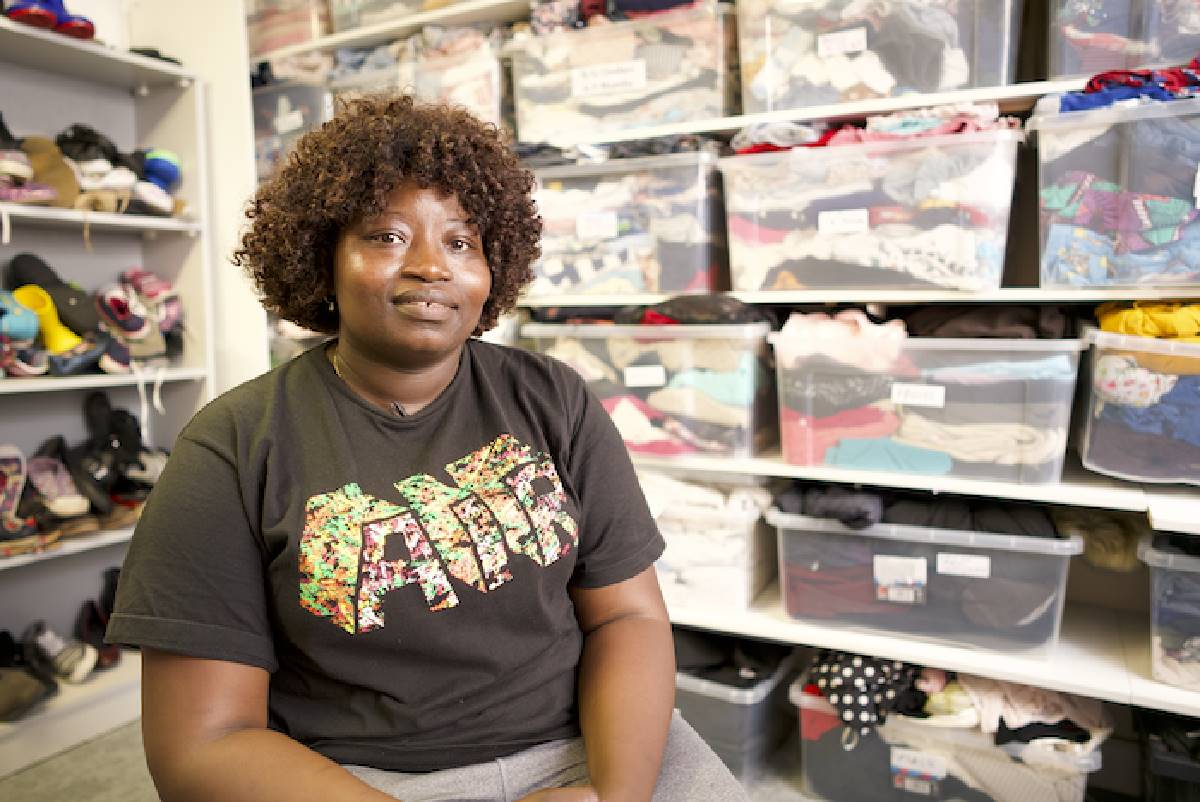New data shows North West residents less likely to turn their heating on then other areas in the UK

AS the UK faces the coldest snap
in more than a decade, new research from Cadent, the UK's largest gas
distribution network, has revealed how 75% of people surveyed on low incomes are
struggling1 to make ends meet, with people in the:- 25 to 34 year old age
bracket (89%) being the worst affected.
Fatema, a single mum of 3 said:- "Since the cost of living crisis, I've
struggled with essentials such as food and uniforms for my children. But more
recently, I was hit with a huge household bill, and I had no way to pay it. I
was terrified!"
The research, conducted by Censuswide on be½ of Cadent, surveyed just over 2,000
people from low income households across the country, to assess how people are
coping with ongoing higher living costs. The toll is mounting and the report
shows that Fatema is not the only 1 experiencing serious financial difficulties.
87% people surveyed are making adjustments to save money, with the main cutbacks
being made on social spend (59%), heating (50%) and food (46%), but stretched to
their limit and with no end in sight, some are making worrying decisions.
42% of respondents have not turned their heating on at all this winter and
alarmingly, this figure rises to 49% amongst:- 45 to 54 year olds surveyed.
There are also huge Regional disparities, with respondents in Manchester more
likely to cope without heating (46%), despite being statistically colder than
the South of England (Greater London 32%).
25 to 34 year olds surveyed are also most likely to skip meals (40% vs 27%
average) and elderly respondents (aged 60+) are more likely to turn the heating
down than non-elderly respondents (70% vs 62%).
52% of the respondents said they don't know where to go for help if they can't
afford to pay their household bills and Cadent is urging people to speak with
their utility supplier if they are struggling to pay their energy bills.
Fatema visited the Bonny Downs Community Centre in East Ham, which receives
funding as part of Cadent's Centres for Warmth programme to support families
worst hit by escalating costs. She explains:- "The Bonny Downs Community
Centre has been a genuine lifeline for me. I don't know where I'd be without the
support, the centre has helped me so much. The team helped with essentials such
as food and when I was hit with an unexpected bill, they have been able to help
me get it paid."
Mark Belmega, Director of Sustainability and Social Purpose, said:- "The
higher cost of living continues to take a staggering toll on Fatema and other
low-income households across the country. Thankfully Fatema found the help she
needed at 1 of our Centres for Warmth and the message we want to share with
others is that help is available. Our website is packed with easy to follow
money saving tips and information to help our customers make savings safely, but
the support goes far beyond this and includes debt and benefit advice; just take
the 1st step and get in touch."
If you are feeling anxious or stressed about higher living costs, Cadent's
partner, Shout, offers 24/7, free, confidential support from a trained mental
health advisor. Text:- 'WARMTH' to:- 85258, to speak to an
advisor.
People on low incomes urged to check if they can get £150 energy bill discount

PEOPLE on low incomes could
benefit from a £150 rebate on their energy bills; and are being urged to act now
where they need to, so they can get the support before this year's scheme
closes.
The help is available to over 3 million households across Great Britain that are
most at risk of fuel poverty, with many receiving the discount automatically.
However, some customers in England and Wales have been sent a letter asking them
to confirm their details by calling the Warm Home Discount Helpline so they can
check their eligibility and get the rebate.
To mark the start of Big Energy Saving Week, Minister for Affordability and
Skills Amanda Solloway is today urging any of these households who need to
provide more information to call the helpline by 29 February and get the support
they are entitled to.
The scheme forms part of measures to keep costs down for families and put more
money in their pockets. It targets support to protect those most at risk of fuel
poverty this winter, following a significant drop in energy prices since their
peak in 2023, and the Government delivering on its pledge to halve inflation;
which is now at a 2 year low of 3.9%.
Tax cuts announced at the start of the year will also support 27 million people
across the UK, meaning a household with 2 average earners will save nearly
£1,000 a year.
Minister for Affordability and Skills Amanda Solloway said:- "We will
always act to support the most vulnerable; and this means making sure those most
in need are getting the right support. Today, I am urging people on low incomes
who have been notified about the Warm Home Discount to make sure they act now to
get £150 off their energy bill. Please check your letter and call our helpline
before the end of February if you need to provide more information."
The Government's Warm Home Discount offers targeted energy bill support for
those most in need. This includes low income pensioners and households in
England and Wales with high energy costs.
These customers received a letter at the end of 2023, explaining the discount
and instructions on any action they may need to take.
For the vast majority of these customers, the discount is automatically applied
to bills between:- October 2023 and March 2024, or is available as a top up
voucher for those with a prepayment meter.
However, some people in England and Wales who received a letter and could
qualify for the support have been asked ring the Government helpline number
provided in their letter to confirm their details. Customers can also find out
more on the Government's Warm Home Discount gov.uk page and use the online
eligibility checker to see if they qualify, or call the general Warm Home
Discount helpline on 0800 030 9322.
In Scotland, customers on low incomes who have not received a letter may still
be eligible and should apply via a different route, by contacting their energy
supplier as soon as possible.
The support comes on top of wider action to protect vulnerable households,
including:- a £900 payment for those on means tested benefits, £300 for
pensioner households, and an extra £150 available for those on disability
benefits.
The Government has also invested over £2 billion into the Household Support Fund
over the last 2 years, increased the Local Housing Allowance Rate so £1.6
million private renters on Housing Benefit or Universal Credit gain an average
of nearly £800 a year and £600 in tax free cash for pensioner households to help
with energy bills through Winter Fuel Payments.
Cold Weather Payments have also been triggered to help households receiving
certain benefits to stay warm this winter. The scheme; which runs until March
2024; provides low income households with an automatic payment of £25 following
periods of cold weather.
Anyone can access advice on how to reduce energy costs and heat their home for
less via the Government's Help for Households
website. This includes:- energy saving tips
as part of the It All Adds Up campaign, which helped British households an
estimated £120 million on their energy bills last winter.









